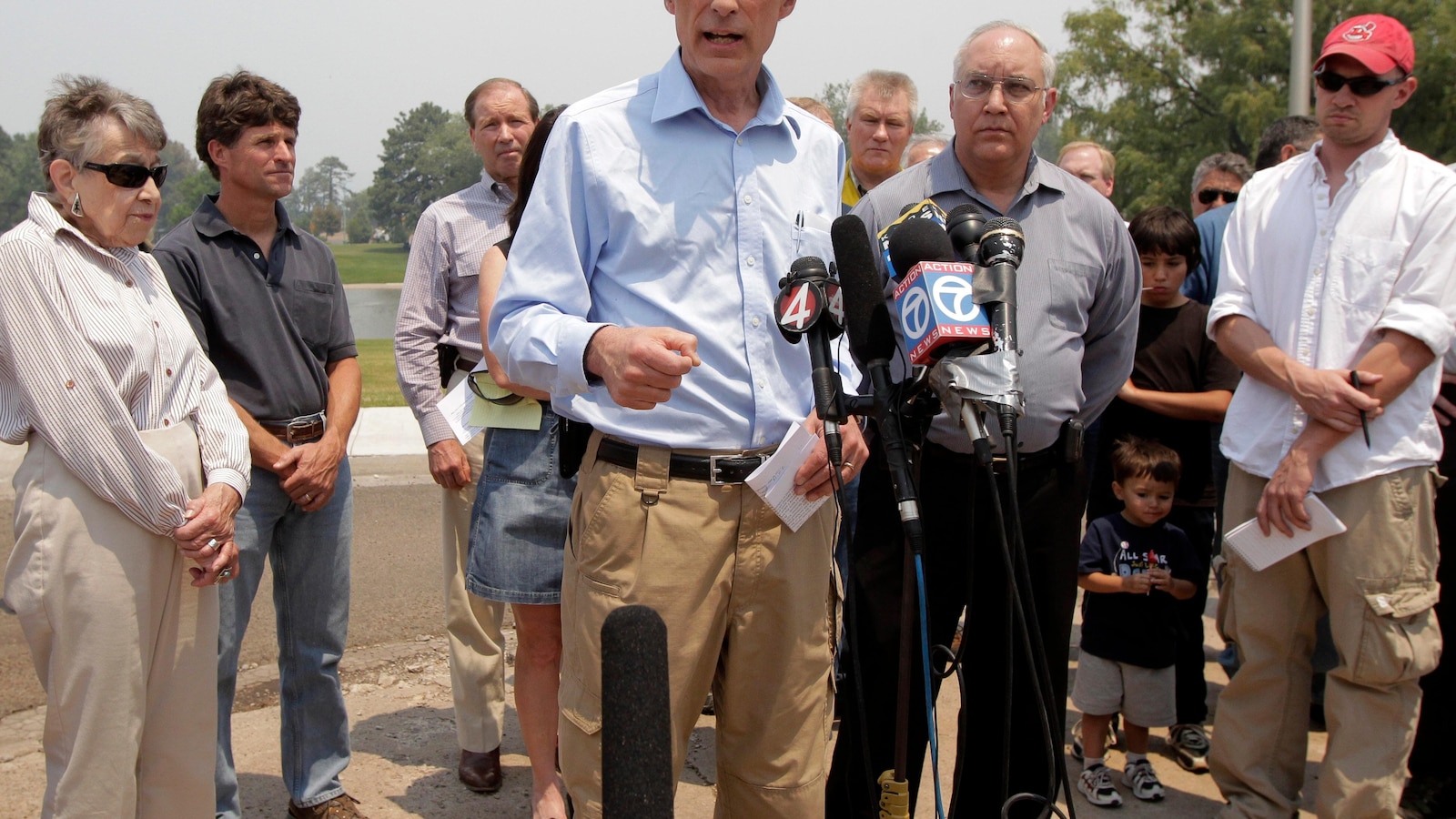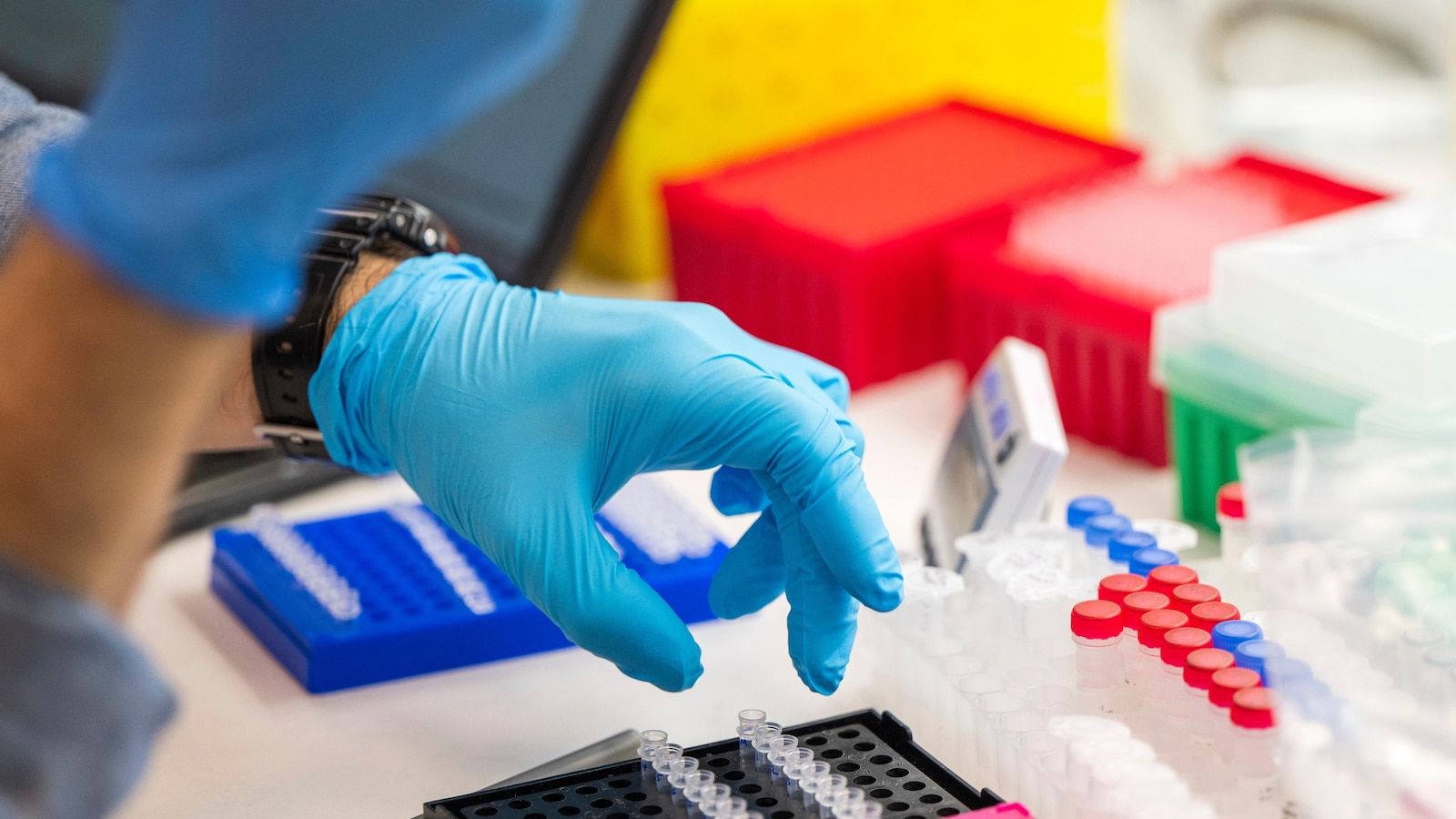
LOS ALAMOS, N.M. — A former top official in U.S. nuclear weapons research at Lawrence Livermore and Los Alamos national laboratories has died from injuries after an automobile crash in New Mexico, authorities said. He was 69.
Charles McMillan, an experimental physicist, spent nearly 23 years in various positions at Livermore in California and about 18 years at Los Alamos, where he was director for six years before retiring in 2017.
He died at a hospital after a two-vehicle crash early Friday on a stretch of road known as Main Hill, not far from the laboratory, police and the current lab director said.
“On behalf of the entire Laboratory, I would like to express deepest sympathies to the McMillan family and to the many current and former employees who worked closely with Charlie and knew him well,” lab Director Thom Mason said in a statement reported by the Santa Fe New Mexican.
Michael Drake, president of the University of California system, issued a statement calling McMillan “an extraordinary leader, scientist and human being who made far-reaching contributions to science and technology in service to national security and the greater good.”
The Livermore laboratory, east of San Francisco, was established as a university offshoot in 1952 and is now operated by the federal government. It maintains a close relationship with campuses and Drake’s office.
McMillan joined Los Alamos National Laboratory in 2006 after his friend and mentor, Michael Anastasio, became director. McMillan served as the principal associate director for weapons programs before becoming director in 2011, the New Mexican reported.
He oversaw the lab during expansion and safety incidents, including a 2014 radiation leak at the Waste Isolation Pilot Plant in southern New Mexico attributed to a waste drum that was improperly packaged at the lab. The National Nuclear Security Administration found in 2015 that the lab violated health and safety rules and docked it more than $10 million in performance awards.
Mason pointed to McMillan’s work to develop a vaccine for HIV and new modeling to better understand climate change.
Democratic U.S. Sen. Martin Heinrich of New Mexico credited McMillan with “invaluable contributions to our state, to science, and to our national security” and cited his work on supercomputing and artificial intelligence.
Nella Domenici, Heinrich’s Republican challenger for U.S. Senate, called McMillan’s death “a great loss to the scientific community and his family.”
Los Alamos police and fire officials said three people were treated for injuries and McMillan and a 22-year-old woman were hospitalized after the crash, which occurred about 5 a.m. The cause was being investigated.
The Los Alamos National Laboratory community is mourning the loss of one of its former directors, who tragically passed away in a car crash in New Mexico. The accident occurred on a remote stretch of highway, where the director’s vehicle collided with another car, resulting in fatal injuries.
The former director, who served at the helm of the prestigious research facility for several years, was known for his leadership and dedication to advancing scientific research and national security. His untimely death has sent shockwaves through the scientific community, as colleagues and friends remember him as a brilliant mind and a compassionate leader.
The circumstances surrounding the car crash are still under investigation, and authorities are working to determine the cause of the accident. In the meantime, the Los Alamos National Laboratory is honoring the memory of their former director with tributes and remembrances, highlighting his contributions to the field of science and his impact on the lives of those who knew him.
The loss of such a prominent figure in the scientific community serves as a reminder of the fragility of life and the importance of cherishing each moment. As the laboratory mourns the death of their former director, they are also reflecting on his legacy and the lasting impact he had on their work and their lives.
In the wake of this tragic event, the Los Alamos National Laboratory is coming together to support one another and to honor the memory of their esteemed colleague. As they grieve the loss of their former director, they are also celebrating his life and his many accomplishments, ensuring that his legacy will live on in the work they continue to do every day.


